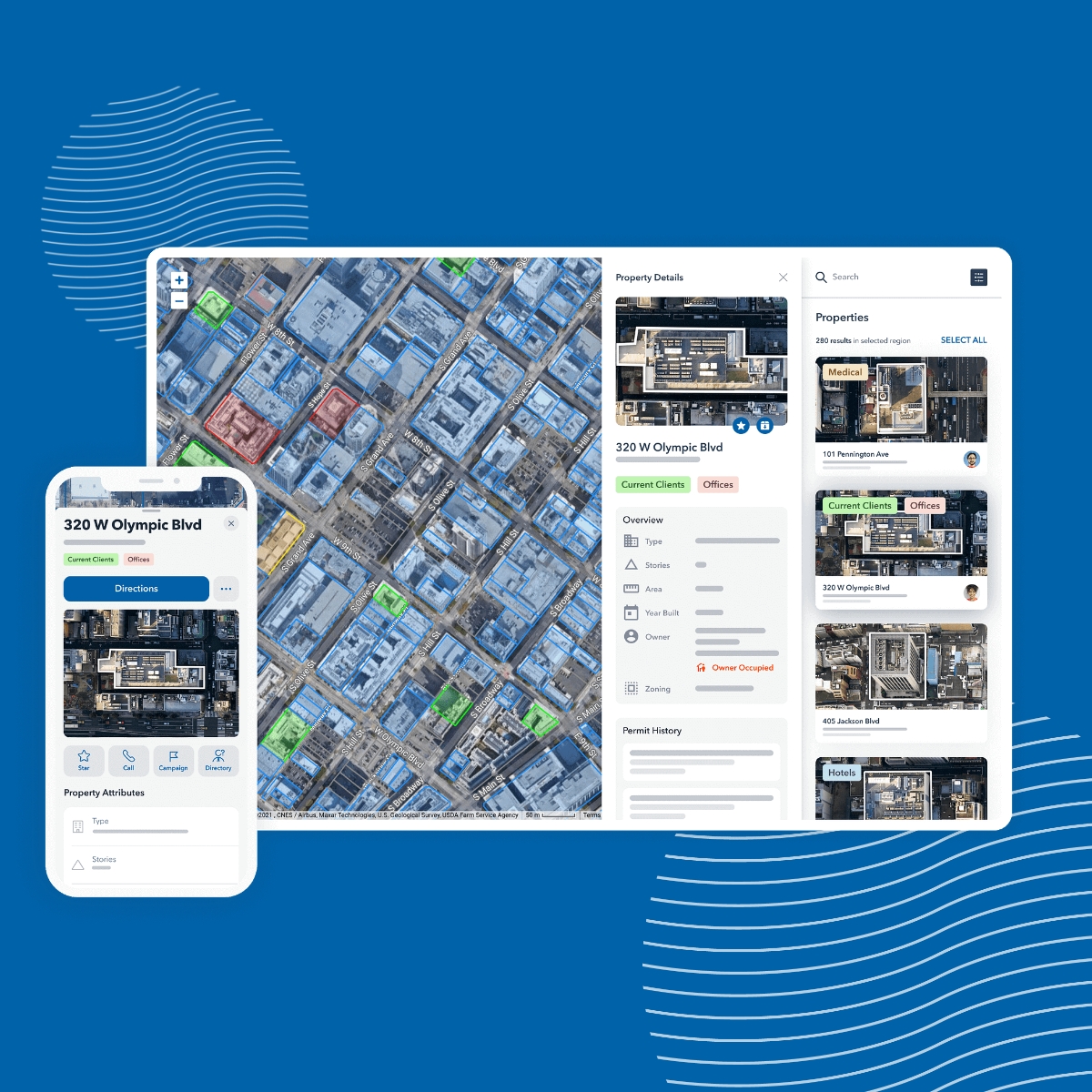Introduction
If you want to be a leader in your field, you need to set the pace. In sales, the “pace-setters” have their choice of deals while everyone else picks up the scraps.
Building a team of pace-setters hinges on two critical elements- drive and technology. Recruiting salespeople who are inherently motivated and hungry to exceed expectations places you squarely in the race – but leveraging advanced lead generation, data, and intelligence tools can catapult your team to the front of the pack.
This is where sales intelligence software becomes invaluable. Sales intelligence serves as the cornerstone of a contemporary sales team, transforming scattered signals and raw data into structured, actionable insights.
In this article, we’re going to talk about the key benefits of using sales intelligence software to empower your team. We’re going to cover the top 10 tools in the marketplace, discover how they streamline your sales operations, and show you how to harness the detailed insights they provide to target potential clients better and dramatically accelerate revenue.
Let’s dive in!

What is Sales Intelligence?
Understanding the Building Blocks of Sales Intelligence
Before diving into the mechanics of sales intelligence, it’s important to understand the types of data that fuel these platforms and how they help you streamline your sales pipeline.
Two distinct types of data power the best sales intelligence systems: intent data and sales intelligence data. Although these terms are often used interchangeably, they serve different strategic purposes:
Intent Data: This tracks a potential buyer’s online activities, such as website visits, downloads, and social media interactions, offering clues about their purchase intentions. Understanding these signals allows sales teams to engage prospects at the moment they are most receptive.
Sales Intelligence Data: This provides in-depth information about decision-makers, companies, or properties. Such data is pivotal for developing informed sales strategies and navigating through the buying stages, ensuring more meaningful engagement and higher conversion rates.

The Benefits of Sales Intelligence Tools
Commercial services sales are a fiercely competitive industry- and staying ahead isn’t just about keeping pace—it’s about setting it. Here’s how sales intelligence software accelerates revenue for your reps:
Boosts Sales Productivity: By automating routine tasks, sales intelligence lets professionals focus more on selling and less on admin chores. This shift not only saves time but also enhances focus on strategic selling.
Enhances Revenue Growth: Leveraging data-driven insights and sales intelligence tools refine your strategies, enabling more precise targeting and boosting sales effectiveness. This directly contributes to sustained revenue growth.
Drives Higher Conversion Rates: With detailed insights into customer behavior, sales teams can craft personalized engagement strategies, significantly increasing the likelihood of conversion.
Targets High-Value Leads: By identifying leads most likely to convert, sales intelligence ensures that your efforts are concentrated where they can yield the most return.
Employs Advanced Sales Tools: Sales intelligence platforms provide access to verified business contacts and advanced search capabilities. Integration with CRM systems streamlines workflows, while adherence to GDPR compliance ensures that your operations stay within legal boundaries.
These five key benefits not only streamline sales processes but also equip teams with the tools they need to drive exceptional business outcomes.

Understanding Sales Intelligence Data
Now that we’ve outlined the different types of data—intent data and sales intelligence—let’s talk about where the data comes from and why this is key to ensuring your buyer insights are best-in-class.
Sources of Sales Intelligence Data
CRM Systems: These are the backbone of data collection in sales, storing detailed records of customer interactions, purchases, and engagements. CRM systems provide a historical view of the customer journey, which is invaluable for forecasting and personalized outreach.
Marketing Automation Platforms: These tools are crucial for capturing and analyzing customer engagement data. From email opens to content interactions, marketing automation platforms help gauge interest levels and time engagements to maximize impact.
Social Media and Online Interactions: Social platforms offer a window into public sentiment and customer preferences. Tracking mentions, comments, and shares can reveal what’s trending and what concerns potential customers might have.
Customer Feedback and Surveys: Direct feedback from customers via surveys and reviews provides unfiltered insights into their satisfaction and expectations. This data is crucial for improving service delivery and adjusting product offerings.
Third-Party Data Providers: External data vendors can enrich internal datasets with broader market insights, competitor analysis, and additional validation, helping to fill any gaps in your own data collection.
“Big data” captures and contextualizes virtually every action we take online, whether it’s a search, a purchase, or an update to a company’s announcement page. This vast trove of information provides actionable insights on:
Uses and Types of Sales Intelligence Data
Company Data: This includes “firmographics” such as company size, industry, revenue, and growth signals like funding events or expansions. Strategic initiatives tracked through this data can signal new opportunities or shifts in a company’s strategy.
Property Intelligence Data: For industries that interact with physical assets or real estate, understanding property details, tenants, permitting, ownership data, and historical transactions can provide a competitive edge.
Contact Data: Detailed records on decision-makers and influencers within companies or properties, including job titles, professional backgrounds, and direct contact information, are essential for personalizing sales pitches and building relationships.
Intent Data: Perhaps the most dynamic intent data is gathered from online behaviors such as website visits, content downloads, and webinar attendance, indicating a prospect’s readiness to engage or buy.
When you combine all of these data points into actionable insights, you have the equivalent of a crystal ball for your sales reps.

Top Sales Intelligence Software
Overview of the Top 10 Sales Intelligence Solutions available today.
Leveraging the right technological tools is a game-changer. Here are the best sales intelligence tools available in 2024, each distinguished by unique features and capabilities to optimize sales processes, make revenue teams save time, and streamline prospecting workflows:
1. Convex
Target Market: Convex serves B2B, commercial, and industrial sales and service teams that work directly with property managers. Built for businesses across various sectors such as HVAC, janitorial and commercial cleaning, elevators, roofing, solar industries, and more.
Value Proposition: Convex specializes in providing best-in-class property intelligence data, transforming it into actionable insights for sales teams. This includes detailed information about property characteristics, ownership details, and commercial tenant data, which are crucial for tailoring sales strategies in property-related industries. Additionally, Convex helps sales and marketing teams identify and engage with potential customers, personalize outreach, understand buyer intent, target the right prospects, streamline lead management, and improve efficiency.Best Use Cases:
Property-Related Prospecting and Outreach: Ideal for companies targeting specific types of properties or owner information, such as industrial buildings, hospitals, and schools. Filter by job title at each of these building types; property manager, facilities manager, owner, and use Generative AI to initiate contact.
Maintenance and Upgrades: Perfect for service providers in commercial services like HVAC, elevators, generators, solar, and roofing who need to identify properties that may require upgrades or maintenance based on property age and characteristics.
Expansion Planning: Useful for commercial services looking to expand their market by targeting properties that share certain characteristics like, they’re under the same ownership or management, have similar tenants, or they’ve recently changed hands. This gives your sales representatives the opportunity to know what’s happening in their market before anyone else so they have a “first mover advantage.”
Convex was designed to supercharge sales efforts for commercial services teams. Offering lead generation and tapping into rich intent data and buying signals to identify promising opportunities.
Additionally, Convex utilizes Generative AI to enhance outreach efforts, ensuring that communications are not only timely but also highly personalized and relevant. This suite of tools streamlines the entire sales process, making it an indispensable resource for sales leaders and teams looking to optimize their strategies and boost efficiency.
2. Cognism
Target Market: B2B sales teams in need of rapid, scalable lead generation.
Value Proposition: Offers comprehensive, GDPR-compliant contact data across various regions, enhancing global outreach.
Best Use Cases: Effective for companies looking to expand their sales efforts internationally in a legally defensible, GDPR-compliant way.
3. LinkedIn Sales Navigator
Target Market: Sales professionals across all industries aiming to leverage professional networking.
Value Proposition: Provides advanced search capabilities within the world’s largest professional network, facilitating targeted outreach.
Best Use Cases: Ideal for personalizing outreach and tracking key changes in prospect profiles, such as job movements.
4. Datanyze
Target Market: Tech-focused B2B companies.
Value Proposition: Specializes in technographic data that helps sales teams understand the technologies used by prospective clients.
Best Use Cases: Excellent for tech stack targeting and competitive displacement campaigns where technology usage data is critical.
5. UpLead
Target Market: Sales teams in small to medium sized businesses focusing on high conversion rates.
Value Proposition: Ensures data accuracy with real-time email verification, reducing bounce rates.
Best Use Cases: Great for precise targeting and enhancing CRM data quality to improve engagement rates.
6. Clearbit
Target Market: Marketing and sales teams in B2B companies focused on personalized marketing.
Value Proposition: Offers real-time data enrichment services, providing deep insights into prospects and enabling personalization at scale.
Best Use Cases: Best utilized for personalizing websites and emails based on visitor data to increase conversion rates.
7. Apollo
Target Market: Startups and SMBs looking for an all-in-one sales intelligence and engagement platform.
Value Proposition: Combines a comprehensive B2B database with a sales engagement platform.
Best Use Cases: Ideal for businesses looking to manage both lead generation and outreach campaigns in one integrated platform.
8. SifData
Target Market: Companies of all sizes that value maintaining relationships and monitoring key accounts.
Value Proposition: Tracks job changes among key decision-makers and alerts sales teams, helping maintain relationships.
Best Use Cases: Useful for B2B businesses focusing on account-based marketing strategies and retention marketing.
9. Salesforce Sales Cloud
Target Market: Medium to large enterprises needing robust CRM integration with their sales intelligence.
Value Proposition: Features AI-powered analytics and a comprehensive suite of sales tools integrated with its top-tier CRM.
Best Use Cases: Works best for companies with complex sales processes that require extensive tracking and analytics across customer interactions.
10. Demandbase
Target Market: Enterprise-level companies with a focus on account-based marketing.
Value Proposition: Merges ABM with sales intelligence, predictive analytics, and advertising capabilities to enhance precision targeting.
Best Use Cases: Excellently suited for organizations with strategic B2B engagements and those needing to coordinate marketing and sales efforts at scale.
Each one of these tools offers its own unique value proposition, targeted industry, and use cases- which leads us to our next point – choosing the right tool for your team.

Choosing the Right Sales Intelligence Platform
According to G2, there are currently 270 sales intelligence platforms on the market – so if you’re not choosing from the 10 in the previous section, you have a long, uphill battle to find the right one. However, selecting the right sales intelligence tool doesn’t have to be a difficult task. It can be straightforward if you gather some key team details and employ a systematic approach. Here are a few things to consider:
Evaluating Your Sales Strategy and Needs
Before selecting a sales intelligence platform, assess your sales strategy holistically. This includes understanding your sales goals, the specific needs of your target audience, and how well your current tools and workflows are supporting your objectives.
An effective sales intelligence tool should elevate your sales operations by delivering precise and actionable data on properties, companies, decision-makers, permits, and market trends pertinent to your industry and products. Additionally, it should streamline operations, ensuring that tasks such as outreach, sales automation, and follow-ups are executed swiftly and efficiently.
The tool you choose should accelerate your B2B sales efforts, not add undue steps to the B2B sales intelligence and process.
Reading Reviews and Case Studies
To gauge the effectiveness of potential sales intelligence tools, spend time researching reviews and case studies. A little exploration can help you understand various aspects of the sales intelligence market tools under consideration, such as their data accuracy, coverage, ease of use, and integration capabilities. Reviews and case studies also offer insights into how other organizations have successfully implemented these tools, highlighting their real-world benefits and limitations.
Look for feedback on critical features like real-time updates of company data, compliance, scalability, support, training, and the tool’s overall impact on sales productivity and revenue growth.
Incorporating these steps into your decision-making process will guide you to a more sales intelligence solution or platform that not only meets your current needs but also scales with your future growth.

Implementing Sales Intelligence Software
Once you’ve chosen a platform, how do you get your team up to speed and fully integrated? The key is a strategic approach to implementation that includes integration, setup, onboarding, and ongoing support.
You’re probably going to face some pushback from your team and sales reps. This is normal as people often don’t like change. But, getting buy-in is key to effective utilization.
Describe how these tools will streamline their work and eliminate redundant tasks. Highlight that tools like Convex can automate time-intensive activities such as lead generation, transforming 2-hour efforts like prospect research into tasks that take just 3 to 5 minutes.
Once the team is bought in, it’s time to get everyone up to speed.

Setting up and onboarding: Set up and onboard the sales intelligence software to ensure a smooth transition. Effective onboarding is crucial to empower sales reps to leverage the software fully, thereby maximizing revenue, optimizing sales processes, targeting higher-value leads to more deals, and improving close rates.

Training and support: Provide comprehensive training and ongoing support to sales teams to ensure they can effectively use the software. Tailored training sessions should cover all functionalities from basic to advanced, facilitating a deeper understanding and skilled use of the platform.

Integrating with existing tools and workflows: Seamlessly integrate the sales intelligence software with existing tools and workflows to streamline the automated sales intelligence process. This integration helps maintain continuity, reduces learning curves, and enhances the overall sales operation efficiency.”
This approach not only makes the software more accessible but also enhances its utility, ensuring that the entire sales pipeline and team can hit the ground running with minimal disruption.

Best Practices for Using Sales Intelligence
When implementing sales intelligence into your sales strategies, focusing on best practices can significantly enhance the effectiveness of your efforts, particularly for commercial and industrial services businesses where targeting and personalization of sales funnel are key.
Here’s how you can leverage sales intelligence to sharpen your sales approaches:
Using Data to Personalize Sales Outreach Harness the detailed insights provided by sales intelligence platforms to craft messages that resonate on a personal level with prospects. For example, Convex offers Generative AI that makes outreach a cinch! Convex takes the data at hand, prepares an outreach email (or call), and in seconds, you’ve made first contact with a decision-maker.
Identifying and Targeting High-Value Leads Use the robust data from sales intelligence tools to segment and prioritize leads that have the highest potential for conversion. This targeted approach not only improves efficiency but also increases the chances of closing deals with the right customers.
Measuring and Optimizing Sales Performance Continuously measure the impact of your sales initiatives by analyzing the data collected through your sales intelligence tool. Adjust strategies in real time to focus on what works best, enhancing your sales team’s performance over time. Tools like Convex provide analytics that can show which types of properties or management profiles most often convert, helping you refine your tactics and focus your resources more effectively.
If you track these metrics on a regular basis, it would be hard not to streamline the sales cycle and accelerate revenue.

Conclusion
Hopefully, in this article, you’ve discovered that sales intelligence is not an optional tool—it’s a necessity for any sales team looking for a competitive edge.
Integrating sales intelligence into your workflows will allow your team to leverage rich and accurate data to better understand prospects, anticipate market needs, and personalize interactions to a degree that wasn’t possible until very recently.
Remember that accelerating revenue is about:
Enhancing lead quality and lead generation
Increasing connections and conversions
Streamlining sales operations for efficiency.
The right tool should offer a combination of all these things.
If you’re ready to elevate your sales strategy with the power of data and the best sales intelligence tools, schedule a demo of Convex today. We’ll show you how we can help you achieve your sales goals and accelerate your revenue. Let’s get started!
Share





